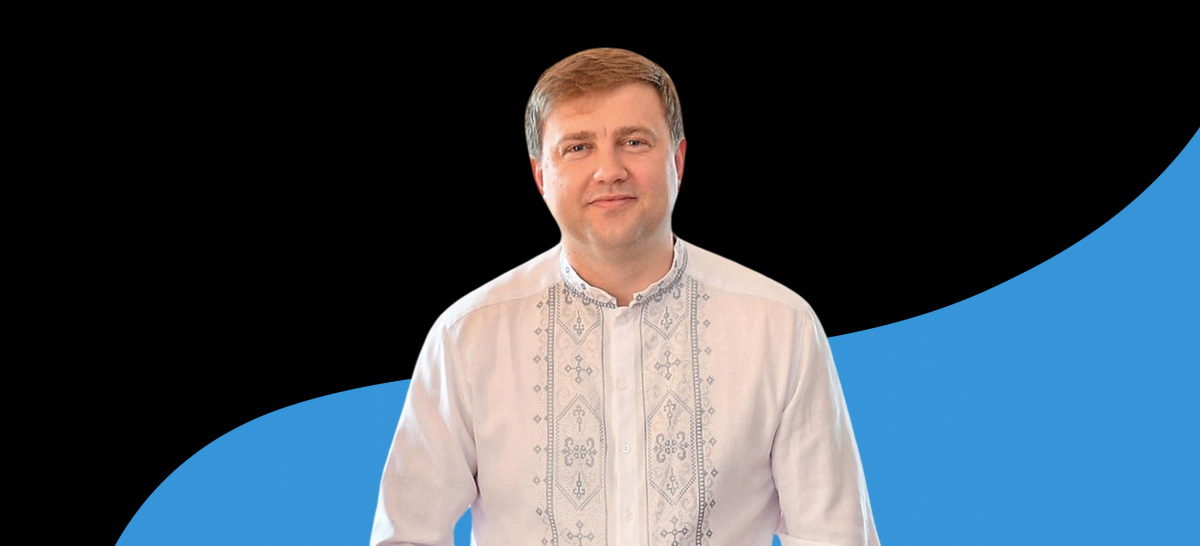

On November 9, after two months under the leadership of the interim head, the State Property Fund finally gets a new head — Vitalii Koval, the head of the Rivne Regional Military Administration. The candidacy submitted by the Prime Minister was supported by 279 MPs.
For the first time since 2014, the election of the SPFU Head was held in accordance with the requirements of the Constitution. The head of the agency used to be appointed by the President with the consent of the Parliament, which was contrary to the provisions of the Fundamental Law.
What do we know about the new SPFU Head?
Since 2006, Vitalii Koval has headed a number of companies in the agricultural, transport, and construction sectors. However, being in the position of director, Koval was found guilty and prosecuted for violating the procedure for maintaining tax records of these enterprises.
From 2016 to 2019, Koval was the head of VVV Montazh LLC, which was engaged in the repair of highways. Although the company is registered in Kyiv, for the most part, it participated in the relevant tenders in Rivne Oblast.
Since September 2019, Vitalii Koval has headed the Rivne Regional State Administration. During Koval’s tenure as the head of the RSA, the media wrote about the receipt of the largest contracts for the repair of roads in the region within the framework of the Big Construction by companies associated with VVV Montazh LLC. Journalists wrote about the Regional State Administration’s introduction of dubious restrictions to the conditions of procurement for the construction of a medical and rehabilitation facility for the military.
In parallel with the duties of the head of the RSA, since 2020, Vitalii Koval has also been an MP of the Rivne City Council, where he heads the Servant of the People faction. In August 2020, the party nominated Koval as a candidate for the post of mayor of Rivne, but he came third and did not reach the second round.
During the election campaign, the media reported on the facts of using a local TV channel to demonstrate stories with signs of political campaigning for the Servant of the People party and Vitalii Koval and also wrote about the activities of fake accounts to “support” the candidate on social networks.
What are the challenges the new leader is facing?
Despite all his political and official background, Vitalii Koval faces many tasks in his new position, which are crucial for the country in a state of war. Let us outline the main ones.
Maximization of revenues from small-scale privatization. The State Property Fund reported record revenues from the sale of state property for various periods in 2023. In January-October, small-scale privatization auctions brought in more than UAH 3 bln. However, this is only half of the planned revenues because the national budget for 2023 included the “ambitious” revenues of UAH 6 bln. The SPFU set a goal to put up for sale another 188 objects with a starting value of UAH 1.36 bln by the end of the year.
The resumption of large-scale privatization can significantly help with the achievement of the planned level of income. The previous Head of the Fund did not cope with this task, although at the end of May, the Parliament removed legislative obstacles and the government regulated technical issues for the launch of online auctions for large-scale privatization in July. Under such conditions, it is the SPFU’s turn to offer private investors the first large state asset since October 2021. The government expects the large-scale privatization to resume next year. The expected “candidates” are still the same: Odesa Portside Plant, Centrenergo, and United Mining and Chemical Company.
But the sale of assets during the war is a challenge, which is primarily related to the search for potential buyers. Therefore, it is important to establish effective communication with investors and publish information about vacant assets and the process of their preparation for sale under a transparent and competitive procedure.
The sale of confiscated (pro-)Russian assets is also associated with the resumption of large-scale privatization. Recently, the State Property Fund initiated before the government the inclusion in the list of large-scale privatization objects of the state share in the capital’s Ocean Plaza shopping mall for sale with a starting price of UAH 1.3 bln.
But in addition to large facilities, the SPFU already manages a sufficient number of other sanctioned assets; the proceeds from their sale will be directly used to finance projects to restore the country and compensate Ukrainians whose housing was affected by Russian aggression. After an unsuccessful first attempt, the agency has already announced the next asset for privatization, but we expect that this will be preceded by amendments to the legislation that restricts the SPFU in terms of the sale of recovered assets.
Effective management of state-owned enterprises. After the full-scale invasion alone, the government transferred 2,200 state-owned enterprises to the State Property Fund, concentrating more than 70% of all business entities of the public sector of the economy in the management of the body. The SPFU has already conducted a triage of the SOE portfolio and determined the list of enterprises that can be put up for sale, will not be subject to privatization, or should be liquidated by the decision of the Fund itself or in bankruptcy.
Therefore, in addition to continuing the course for privatization, the department and its new head face the task of corporatizing strategic enterprises subordinate to the Fund and bringing their management practices in line with international standards, in particular, by establishing supervisory boards to increase transparency and efficiency of their activities. Regarding SOEs that are subject to liquidation, it is necessary to launch mechanisms for the selection of managers to oversee the termination of the enterprises’ activities, in accordance with the law already adopted for this purpose.
This publication was prepared by Transparency International Ukraine with the financial support of Sweden.






